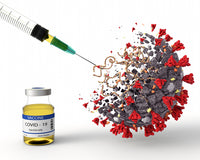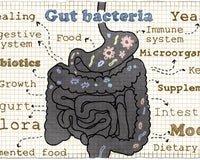It’s no secret that what you eat is very important to your gut health, and many of the benefits of a healthy diet directly impact the gastrointestinal system.
There some tell-tale signs that can tell you that your digestive system might need a little help.
Some of those are bloating, belching, changes in toilet habits, changes in appetite, gas, discomfort, cramps, and a bad taste in your mouth.
There is a lot of foods and supplements that can support digestion in a strong digestive tract, and there are several others that can cause you problems, or even do you harm.

Below are the top five foods, or things you can eat, that you may want to reduce or avoid for a healthier, happier gut.
Artificial Sweeteners and Diabetes
One of the biggest offenders is noncaloric artificial sweeteners.
They were first introduced as an attempt to reduce sugar intake that had been attributed to weight gain.
Sadly, these sweeteners have not lived up to the high goals that were laid out for them.
Artificial sweeteners have crept into many of our foods, and are far more common than we know.
Recent evidence shows that these additives make changes in the body to blood sugar, which can result in unwanted weight gain, a higher caloric intake, and increased appetite.
One of the undesirable impacts of consuming artificial sweeteners is their effect on the gut’s microbiome.
Though much isn’t clear about how these artificial sugar alternatives work with the bacteria of the gut, it could be that they promote the growth of harmful bacteria, or damage the helpful bacteria that are already present in the gut.

No matter how you name them, artificial sweeteners, nonnutritive sweeteners, noncaloric sweeteners, or sugar substitutes, they are the savior we were looking for.
The best way to avoid artificial sweeteners is to read product labels, avoid products that are labeled sugar-free, and consider monk fruit or allulose as sweetener alternatives.
Conventional Animal Products
Though animal products are a great source of important nutrients like niacin, iron, and amino acids, excess consumption of these products can be the cause of lower consumption of healthy vegetables and other plant-based foods.
A diet that is high in protein for a long extended period, especially when the high protein consumption leads to a lack of intake of plant fiber, can cause an imbalance in gut health bacteria.
When someone has a high intake of protein and processed and red meats especially, there can be an increase in harmful metabolites that are produced by the bacteria in the gut and can lead to low levels of protective metabolites in the gut as well.

The quantity of proteins consumed from meats is important, but the quality is as well.
Much of conventional farming exposes the products to pesticides, which can be harmful to the farmers and the environment.
On the opposite end, organic farming offers a somewhat better nutritional profile and is better for the welfare of the animals.
One problem with raising animals in the conventional method is the high use of antibiotics, which is concerning because of its contributions to resistant strains of bacteria.
There is little research on the effects of the use of prophylactic antibiotics in animals on the gut health microbiome of humans, but it’s not a far reach to assume there are some adverse effects.
Refined Sugar
As far as eating in moderation goes, sugar is one of the places where we all are doing a rather awful job.
The daily recommended intake of sugar is far exceeded by the average American every day.

The good bacteria in our guts use fiber as a source of energy.
Things such as fresh whole fruits provide sugars.
They also provide things like vitamins, minerals, and fiber.
When talking about refined sugar, it is just sugar with all of the other beneficial things taken out.
When someone eats a diet consisting of a large amount of refined sugar, there is very little fiber available for the microbiome of the gut health, which causes a lack of good bacteria to fight off the harmful ones.
Sugar Alcohol
The effects that alcohol can have on the body range from inhibiting and influencing the base functions of many of its systems and organs, to adversely affecting the gastrointestinal system.
When a person consumes chronic amounts of alcohol, it can alter the balance of the microbes in the digestive tract, causing a shift in the kinds of microbes in the gut, and increased intestinal permeability.

The imbalance caused by this has quite a bad impact on how the digestive system produces important metabolites, such as the precursors to neurotransmitters, hormones, and short-chain fatty acids.
Even acute alcohol consumption has its bad effects, aside from those that affect the digestive tract.
It puts stress on the liver, disturbs sleep, promotes unsafe behavior, and is a large source of sugar and empty calories.
Conventionally Grown Coffee
There aren’t many things that we grow that are more heavily treated with chemicals than conventional coffee.
The pesticides, fungicides, synthetic fertilizers, herbicides, and insecticides that coffee is treated with during the cultivation process have many implications for farmers and the environment.
This is one of many reasons to choose an organic fair-trade coffee.
Keeping your coffee consumption at a moderate level has many benefits, as well as choosing a quality coffee.
When you drink coffee, it can increase the amount of stomach acid your system produces.

When there is too much acid in the stomach, it can irritate the lining of the stomach and cause digestive distress.
Coffees laxative effect can be attributed to this irritation, as can trouble with cramps and spasms.
Dependency on coffee because of caffeine is a problem many people face, and many have symptoms of withdrawal when they are trying to wean off how much they consume.
It is also a diuretic and contributes to dehydration and Bullet a coffee brand that does not hurt your gut balance.
When used sparingly, coffee can be a wonderful morning treat, but it can make things worse if you already have stomach or digestive issues.
No matter your reasons for seeking a healthier gut, food choices play a huge role in that endeavor.
Picking foods that are easy on the digestive tract is one great way to make sure that you’re taking optimal care of your gut and its biome.







